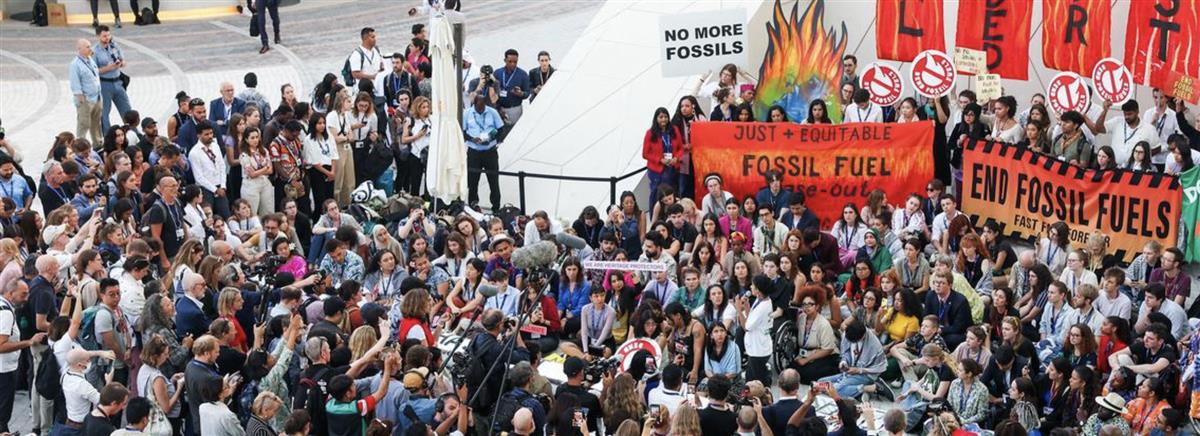
Climate and Environment
The latest COP28 draft outcome text released to negotiators in Dubai Monday evening dropped a call to ‘phaseout’ fossil fuels, prompting outcry from climate vulnerable countries and civil society.
The 21-page text, prepared by the COP28 presidency, United Arab Emirates, makes no mention of fossil fuel ‘phasedown’ or ‘phaseout’, which UN Secretary-General António Guterres said earlier on Monday was one of the keys to the conference’s success and which many nations have demanded.
Rather, the draft text called for countries to reduce “consumption and production of fossil fuels, in a just, orderly and equitable manner.”
The United States, European Union countries, and a group of small island developing States joined a chorus of civil society groups denouncing the draft as not going far enough to curb global warming.
This is not the final text though, and negotiations on compromise language are expected to continue all day Tuesday, the scheduled closing day for COP28.
Expect a waiting game as delegates wrangle over a new text that’s more than a list of things countries could do.
Activists and some countries are demanding stronger language that better reflects the true urgency of tackling the climate crisis.
Here’s a look at some of the (largely voluntary) measures that made it into the current draft and what’s out:
What’s in:
- Tripling global capacity of renewable energy by 2030 [the US and China pledged to work together towards this goal in a deal struck between the world’s two biggest emitters in the run-up to COP28];
- The rapid phasedown of “unabated coal” and curtailing the number of new licenses;
- Zero and low emissions technologies, including removal technologies such as carbon capture, and utilization and storage;
- Climate finance, but with a ‘weak language’; and
- Targets on adaptation with insufficient financial commitments, or ‘without a work programme’ to measure it.
What’s out:
- The phaseout of fossil fuels;
- The words “oil” and “natural gas” do not appear;
- Strong obligations for rich countries; and
- Equity in adaptation, needed for equitable support from rich countries.
Harjeet Singh, Head of Global Political Strategy at Climate Action Network International, told UN News that he was expecting the new text to be “much stronger, but the language on phaseout of fossil fuels is now completely gone … As civil society we reject the text.”
“There will be negotiation on this text,” continued Mr. Singh. “Let’s see how countries respond.”
Mr. Singh said that over the two weeks the conference had been meeting in the UAE, there had “clearly been pressure from the outside … coming from the fossil fuel industry. We have seen OPEC issuing a letter; how [oil-producing countries] are completely against any language on fossil fuel phaseout; how rich countries are only grandstanding.
“It’s going to be a long night,” he said.
Toeolesulusulu Cedric Schuster, Samoa’s Minister of Natural Resources and Environment and the chair of the Alliance of Small Island States told UN News: “The [text] does not reflect what we came here for, especially the language on phaseout of fossil fuel. It doesn’t reflect the 1.5 degree [goal] that we need to stay alive.”
Blinking back tears, Sharon-Mona Ainuu told UN News that after having come so far and spending so much money to get to Dubai “money we don’t have” she was heartbroken to see that the text “is so against what we believe in” and doesn’t reflect the position of peoples from the South Pacific.
“We are the most vulnerable people,” said Ms. Ainuu, who is the Minister of Natural Resources of the small island nation of Niue.
“Our islands are submerged; our islands are sinking… Others must think of us. It’s a moral obligation as humans to do good for others.”
Want to know more? Check out our special events page, where you can find all our coverage of the COP28 climate conference, including stories and videos, explainers and our newsletter.
SOURCE: UN NEWS